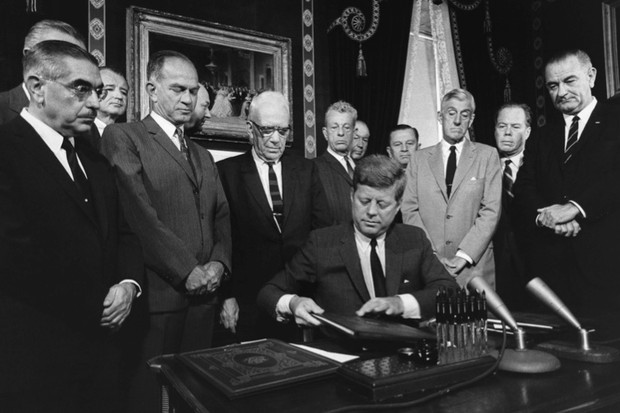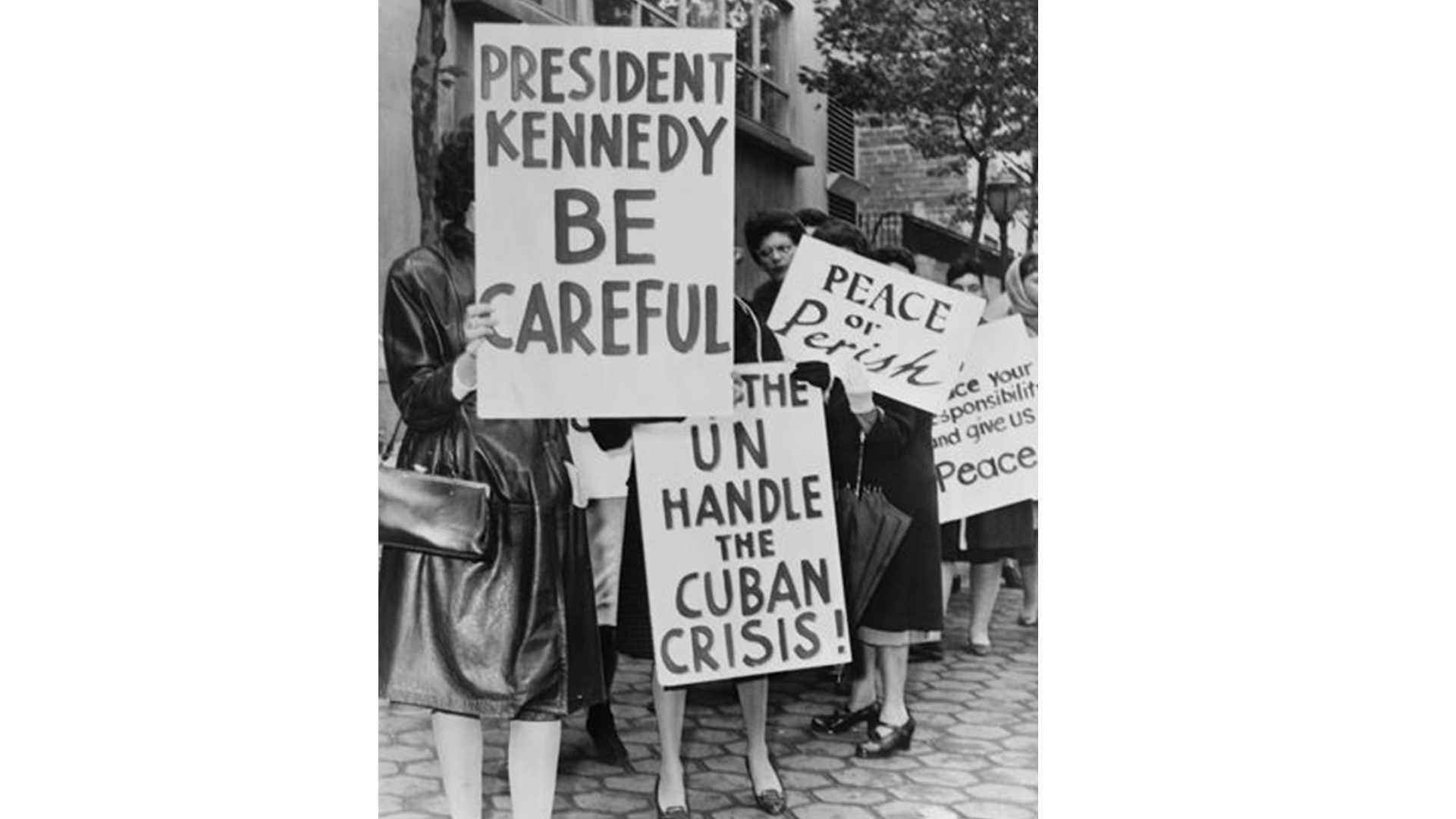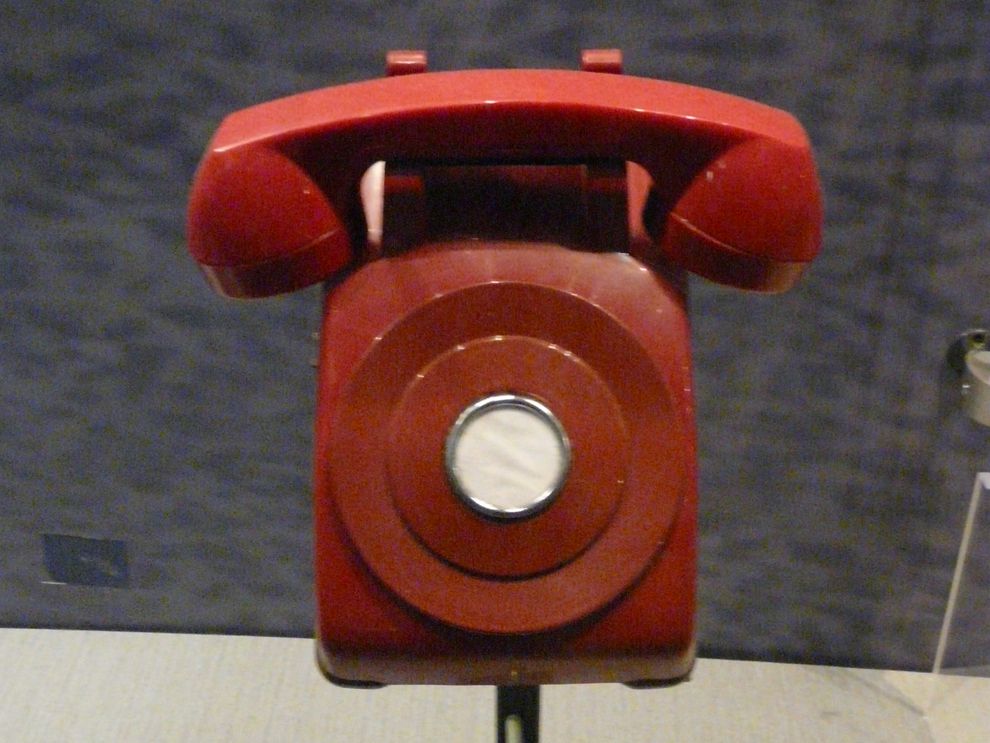The Effects of the Cuban Missile Crisis
While there were, undoubtedly, a multitude of crucial effects that transpired as a direct result of the Cuban Missile Crisis, the three principle effects are outlined below.
“Mankind must put an end to war, or war will put an end to mankind.”
-John F Kennedy
Pressure

A photograph of President Kennedy and his Cabinet feeling the 'pressure,' during the Cuban Missile Crisis - History Extra.
A US spy plane photographing a missile site in Cuba initiated the pressure between the US and the USSR. When this photograph was shown to President Kennedy, it was unclear whether the missiles were operational. If they were operational and the US initiated an attack on Cuba, which is what President Kennedy’s advisors urged him to do, the missiles in Cuba - when deployed - could bombard the United States in minutes.
Then, President Kennedy was faced with a multifaceted momentous decision, “inform the public or not, and how should the US retaliate against the USSR?” An overly aggressive move, such as invading Cuba, could result in Armageddon, and informing the public could cause mass-hysteria. The fear of nuclear warfare created intense pressure in the world, from Beijing to Brasilia and D.C to Moscow.
“Nuclear weapons are so destructive and ballistic missiles are so swift, that any substantially increased possibility of their use or any sudden change in their deployment may well be regarded as a definite threat to peace.”
– John F. Kennedy
Pandemonium

A photograph of protestors urging President Kennedy to be careful with Cuba - Skillsphere Education.
On October 22, 1962, President Kennedy finally made the decision to inform the global public. Following the announcement, on October 27, 1962, an American spy plane was shot down by Cuban anti-aircraft, both sides accused the other of wanton aggression.
The world responded in a terrified outcry, there was pandemonium: sirens went off – warning citizens of the imminent danger, air-raid shelters were prepared, and everyone desperately sought for protection from the bombs. The situation became so dire that store shelves ran empty and daily life halted. People were preparing, terrified, for what they thought was inevitable nuclear war.
However, some viewed this situation as an opportunity. For example, new evidence from the Russian Foreign Ministry archive propounds a “double game” that Brazilian President João Goulart was playing – vowing solidarity with the US, while also expressing support for the USSR.
Video of President Kennedy's Speech regarding the Cuban Missile Crisis, October 22nd, 1962 - Adapted - YouTube.
“The President was deciding, for the U.S., the Soviet Union, Turkey, NATO, and really for all mankind….”
– Robert F. Kennedy
Prevention

A photograph of the original 'Red Line,' implemented as a preventative measure after the Cuban Missile Crisis - National Geographic Society.
Prevention came promptly, as the world wished never to be placed in such a position again. These agreements consist of two treaties – related to the non-proliferation and honesty of nuclear missile capacity, the establishment of the ‘Red Line’ – a telephone line directly from Washington D.C. to Moscow, the removal of nuclear devices from both Cuba and Turkey, and the guaranteed sovereignty of Cuba.
This plethora of outcomes served to cool-down the heated Cold War. Moreover, it allowed a more open and direct discussion to occur frequently between both NATO and the USSR, which aided in preventing miscommunication and keeping the relative peace. Other countries, like Mao Zedong’s China, used the worldwide reality-check to connect with Cuba and expand China’s diplomatic dealings – hoping to move Cuba away from the Soviet Revisionism that placed it in such a quagmire. However, with the subsequent Vietnamese and Afghan Wars – the Cold War did not remain cool for long, in hindsight.
“Let us never negotiate out of fear. But let us never fear to negotiate”
– John F Kennedy